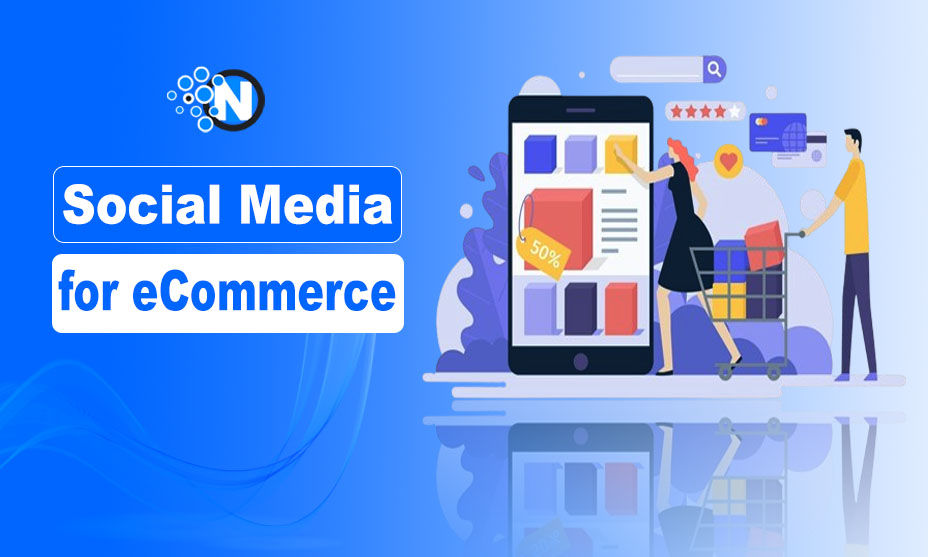How Social Media Shapes Contemporary eCommerce Tactics

In the era when social media platforms are the most powerful tools that define people’s perception and control their purchasing decisions, companies cannot remain indifferent to them. Especially for eCommerce sites, social media is not just a way of communication, but it is a way of selling and branding.
But in what way do these platforms transform the conventional models of the Internet business?
Let’s Explore!
Leveraging Social Media for Brand Building: An eCommerce Perspective
To understand this evolution, let’s look at a common case in the emerging print on demand, market that consists of companies that offer personalized items. This approach makes extensive use of social networks to target specific categories of consumers with ads of individually tailored products ranging from t-shirts with humorous inscriptions to exclusive home accessories.
The charm of this model is that it is aimed directly at customers’ interests, developed and considered within the social interactions and interactions on Facebook, Instagram, Pinterest.
Also, social media platforms provide eCommerce companies with special features like advertising, sponsored collaborations with influencers, and buying options like Instagram Shopping. The use of these tools enables brands to get to the clients at points where they spend most of their time.
For instance, an online shop of customized T-shirts and other clothes can use the Instagram ads to reach out to the users who are interested in similar products or those who follow the trends related to the clothes and, thus, affect their decisions right where they are interested.

Streamlining Customer Acquisition through Social Media Insights
By the time consumers are interacting on social media, they are often ready to buy, and thus, as an eCommerce business, you are privy to so much information about your consumers. This data goldmine can easily help to cut down the customer acquisition process by giving the specific metrics of the users’ behavior, their preferences, and the level of engagement.
This in turn enables business organizations to fine-tune their marketing plans in real-time when analyzing this data. For instance, if a print on demand service sees that there is increasing conversations on social media about sustainable products, then it can change its product portfolio and promotional messages to reflect this trend.
Also, social media allows to carry out split tests of ad campaigns, where a business can post different text and images to see which appeals to its target market most.
Key Strategies for Enhancing eCommerce Sales via Social Media
There are several tools and techniques available on social media that can help to increase eCommerce sales successfully. Here are some key approaches that have proven successful for online businesses:
- Influencer Partnerships: Partnering with influencers can help you expand your brand awareness and gain the consumers’ trust. That is why you should select influencers who have an audience that can be considered your target audience to promote your products naturally.
- Interactive Content: This is by using polls, quizzes and interactive stories to ensure that the users are actively participating with the application. Not only does this help increase engagement but it also helps to obtain important information about customers.
- Limited-Time Offers: Make up a sense of urgency due to limited time offers that you post on your social media accounts. This strategy helps to make decisions faster and increase the chances of spontaneous purchases.
- User-Generated Content: Suggest customers post their own pictures and feedback regarding your products. This is trustful and generates genuine material that will appeal to new customers.
- Retargeting Campaigns: You should consider using retargeting ads to target the users who visited your site but never bought anything. This helps keep your brand fresh in the mind of the consumer, thus boosting the conversion rate.
In this way, using these strategies, businesses do not only use social media for simple branding but as a strong tool for direct selling, and thus improve the efficiency of the companies’ eCommerce activities.
Navigating Challenges: Social Media’s Impact on Customer Expectations
Social media raises the bar in terms of customer demands in the context of the quality and novelty of products as well as regarding the quality of the interactions with the companies. Today’s consumer wants an instant reply and wants to receive a response as if they are on a one-to-one basis with a company on social media. This demand puts a lot of pressure on eCommerce businesses to be as active and as responsive as possible in the online sphere.
The positive side of social media is that it will expose business organizations to a wider market but the negative side is that the business organizations will be exposed to criticism from the public. One bad word or a dissatisfied customer who posted his or her grievance on social media can go viral in the blink of an eye. Therefore, it is important for companies to have strong action plans in customer service which must be as effective as the business’ marketing approaches.
Conclusion: Embracing the Power of Social Media in eCommerce
It is obvious that social media has become one of the most important tools in the eCommerce industry providing immense opportunities for brand development and direct sales. Thus, using the strategic approach that implies not only the engagement with the target audience but also the analytics, businesses can gain much more benefits than before.
Nonetheless, the advantages at this level are considerably more than the disadvantages: Despite the fact that managing customers’ expectations and the company’s image in the Internet environment remains a problem, it is possible to note the following advantages.
When it comes to the modern eCommerce environment, social media integration is not a recommendation; it is a requirement for any eCommerce business that want to perform well. Its management will be critical in ensuring that firms remain relevant and sustainable in the market.




